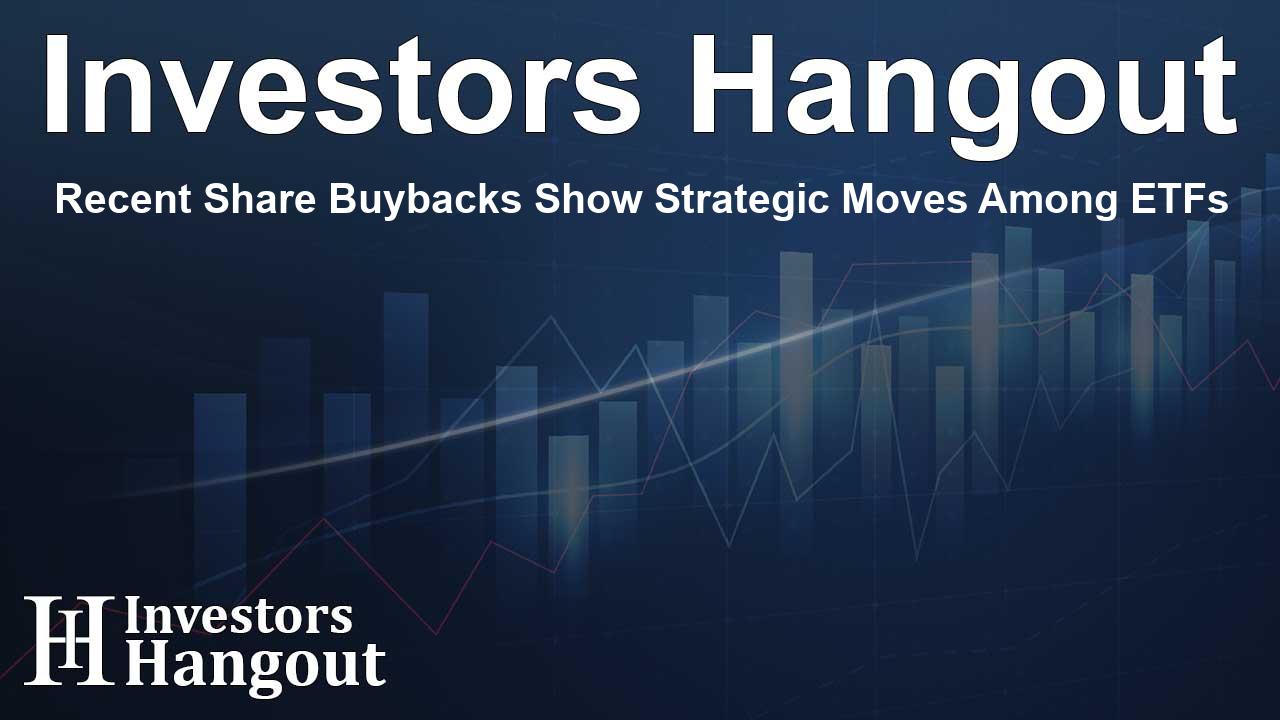Recent Share Buybacks Show Strategic Moves Among ETFs

Recent Share Buybacks Show Strategic Moves Among ETFs
In a notable trend, various exchange-traded funds (ETFs) have initiated a series of share repurchases. Key players in this segment include Legal & General (LON:LGEN) UCITS ETF PLC, Invesco Markets II PLC, Vanguard Funds PLC, OSSIAM IRL ICAV, and GLOBALXETFS ICAV. These buyback transactions have come to light through a recent announcement by the Bank of New York Mellon (NYSE:BK), which serves as a custodian and administrator for numerous investment funds.
Details of Share Repurchases
The share repurchase activities have involved a significant number of shares and varying nominal amounts. For example, Invesco Markets II PLC executed a buyback of 11.4 million shares, which brought their outstanding balance down to 10.5 million shares. Additionally, Vanguard Funds PLC's buyback encompassed a striking figure of over 40 million shares, resulting in a slight increase in their remaining balance to roughly 40.7 million shares.
Impact on Fund Structures
Legal & General UCITS ETF PLC also participated actively in share buybacks, managing transactions that numbered over 83 million shares. After markdown of roughly 308,405 shares, they still maintained an impressive balance nearing 83 million shares. These repurchases signify fundamental adjustments to the funds' capital structures that are routinely addressed to enhance share liquidity and align with their investment strategies.
Why Do ETFs Engage in Buybacks?
Share buybacks are frequently seen as an essential mechanism among ETFs. They help manage the funds’ market capitalization while simultaneously ensuring liquidity for shareholders. The process allows fund managers to tackle excess share supplies that may impact the share prices adversely.
Role of the Bank of New York Mellon
The Bank of New York Mellon plays a crucial role in these operations, being a global financial services leader. Their involvement as a custodian not only facilitates the share repurchase process but also reassures investors about the integrity and transparency of ETF management activities.
Conclusion
This series of share repurchase activities highlights a strategic approach by leading ETF issuers to maintain liquidity and adhere to their investment practices. They serve as a reminder of how market dynamics can influence fund administrators and their operational strategies.
Frequently Asked Questions
What are share repurchases in ETFs?
Share repurchases in ETFs involve buying back shares from the market to manage the supply and improve share liquidity.
Why do ETFs conduct share buybacks?
ETFs conduct buybacks to adjust their capital structure, manage market capitalization, and ensure liquidity for their investors.
Who is involved in facilitating ETF transactions?
Companies like the Bank of New York Mellon often facilitate ETF transactions by acting as custodians and administrators.
What does a significant markdown in shares indicate?
A significant markdown indicates adjustments made to the number of shares outstanding, typically reflecting the fund's strategic repositioning.
How can investors benefit from ETF buybacks?
Investors can benefit from ETF buybacks through improved liquidity and potential stabilization of share prices, enhancing overall investor confidence.
About Investors Hangout
Investors Hangout is a leading online stock forum for financial discussion and learning, offering a wide range of free tools and resources. It draws in traders of all levels, who exchange market knowledge, investigate trading tactics, and keep an eye on industry developments in real time. Featuring financial articles, stock message boards, quotes, charts, company profiles, and live news updates. Through cooperative learning and a wealth of informational resources, it helps users from novices creating their first portfolios to experts honing their techniques. Join Investors Hangout today: https://investorshangout.com/
Disclaimer: The content of this article is solely for general informational purposes only; it does not represent legal, financial, or investment advice. Investors Hangout does not offer financial advice; the author is not a licensed financial advisor. Consult a qualified advisor before making any financial or investment decisions based on this article. The author's interpretation of publicly available data shapes the opinions presented here; as a result, they should not be taken as advice to purchase, sell, or hold any securities mentioned or any other investments. The author does not guarantee the accuracy, completeness, or timeliness of any material, providing it "as is." Information and market conditions may change; past performance is not indicative of future outcomes. If any of the material offered here is inaccurate, please contact us for corrections.